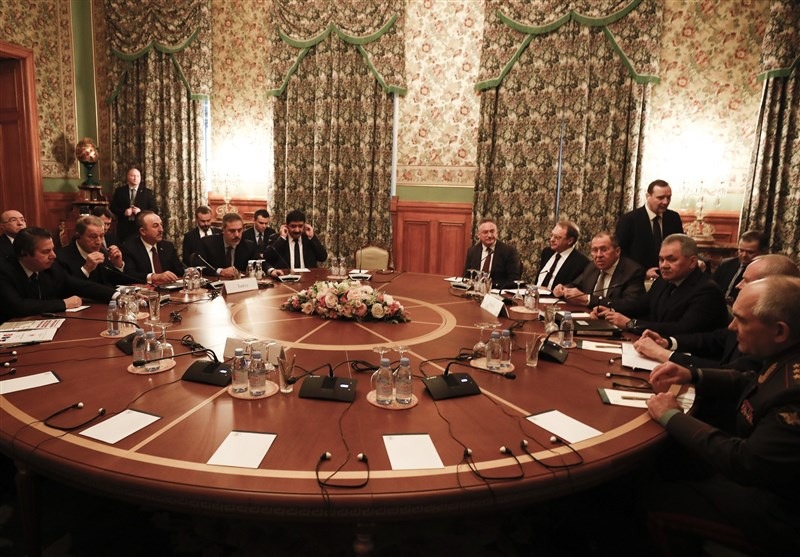In an interview with the website of the Strategic Council on Foreign Relations, Dr. Ahmad Bakhshi said that foreign intervention led to the overthrow of Muammar Gaddafi, adding that in post-Gaddafi Libya, one of the reasons for the continued turmoil and crisis is foreign intervention. Each of these countries has found proxy groups to serve their goals and interests due to diversity of interests.
He said foreign intervention in Libya was mainly from Arab countries. The conservative Libyan government led by Faiz al-Seraj is not well accepted by many conservative Arab states, and most countries, such as Saudi Arabia and the United Arab Emirates, support the Libyan National Army under the leadership of Khalifa Haftar. This has actually led to the continuation of the crisis.
Referring to a decision by the Turkish parliament to dispatch troops and military advisors to Libya, he said: “The idea has been opposed by the Libyan parliament and the Arab countries in the region and those who somehow support the Libyan National Army under the leadership of Khalifa Haftar, the African affairs expert said. They felt that Turkey’s intervention under the policy of “Neo-Ottomanism” may threaten their interests.
Reason for Continuation of Libyan Crises
Referring to warnings from the United Nations and certain countries about foreign intervention in Libya, he said: “We cannot consider foreign intervention a new debate in Libyan politics and establishment, but we can say in post-Gaddafi era, foreign intervention and the support each of these countries voice for the conflicting parties has become a basic principle in policymaking and governance and is regarded the main cause of continuation of these crises.”
The African affairs analyst on whether these interventions could lead to agreements, including a ceasefire, said: “This does not seem to be happening in Libya.” In the short term, this seems unexpected because the interests of conservative countries such as Egypt, the United Arab Emirates, Saudi Arabia and other countries such as Qatar and Turkey have not been fully met. On the other hand, the actions taken by the US and Russia have not reached any consensus.
Turkey’s Role in Escalating Crisis
Noting that Turkey’s actions in Libya exacerbate the crises in the country, he added: “After Turkey’s actions, the intervention of pro-Khalifa states in Libya will increase and we will see a prolonged proxy war of attrition.”
He emphasized that the Libyan problem has become a complex issue that cannot be resolved soon. He added that Khalifa Haftar, with the lands he has seized seeks to overthrow the legitimate Libyan government. When he leaves Moscow without signing a peace agreement indicates that he still pursues more interests. Unless the Arab states feel that Khalifa Haftar will have the upper hand in the agreements and gains some concessions, they will not allow him to sign a ceasefire agreement unless such action is taken under US and Russian pressures.
“In the Middle East and those countries with fragile economies, I believe that a ‘national unity government’ or a ‘coalition government’ cannot be a solution to the crisis,” he said. Although it may take some time for the government to come to an agreement, the fragility will remain in that country and the international meetings held to resolve the issues will be virtually ineffective.
Khalifa Haftar is approaching the populated areas of Tripoli where there is a likelihood of bloodshed and he wants to have more concessions by way of threat and approaching the capital. Most importantly, he declares that he does not want to share power, but that all the power must be for him.
The African affairs expert on Turkey’s behavior towards Libya also said that the Justice and Development Party (AKP), which has been operating in Turkey since 2000 is seeking Turkish influence through Neo-Ottomanism”. Under this policy, even as Egypt, Tunisia, and Libya were part of Ottoman territory, they wanted to maintain and even expand their strategic depth by penetrating these countries.
Arab States Concerned about Influence of Muslim Brotherhood
In part, Turkey’s presence in the foreign policy of other countries, and mainly Arab states, means that the Muslim Brotherhood has infiltrated those countries.
Of course, some of Turkey’s actions are met with a deterrent in the name of the United States and in some cases Russia.
He also said that the reason for escalation of foreign intervention in Libya in recent weeks is that conservative countries in the region believe that if the way is opened for Turkey to maintain presence in Libya the Muslim Brotherhood could take root and the domino of change that had been partly contained in the Persian Gulf by Saudi Arabia, the UAE and Egypt, could resume and endanger their strategic depth, interests and security.










0 Comments